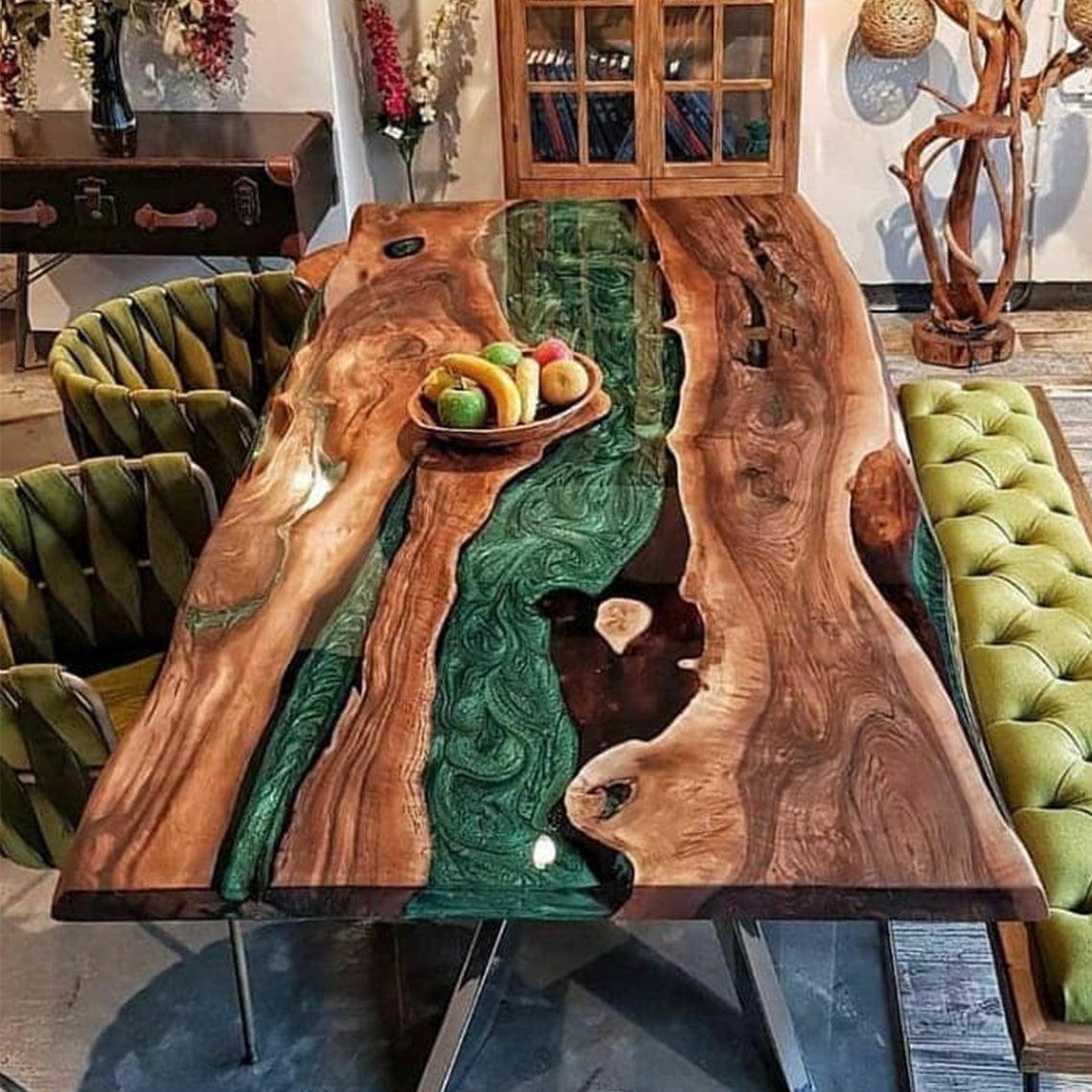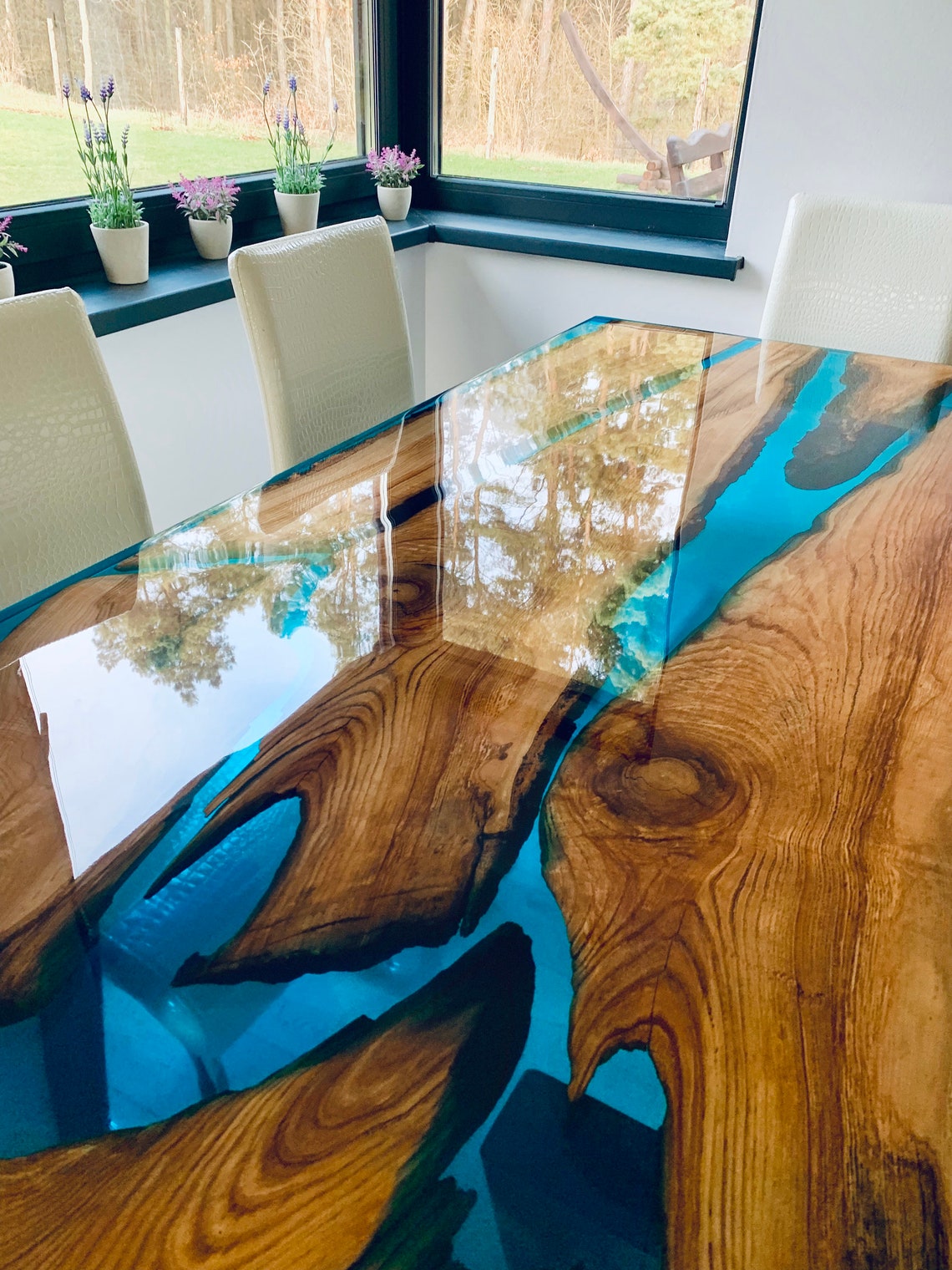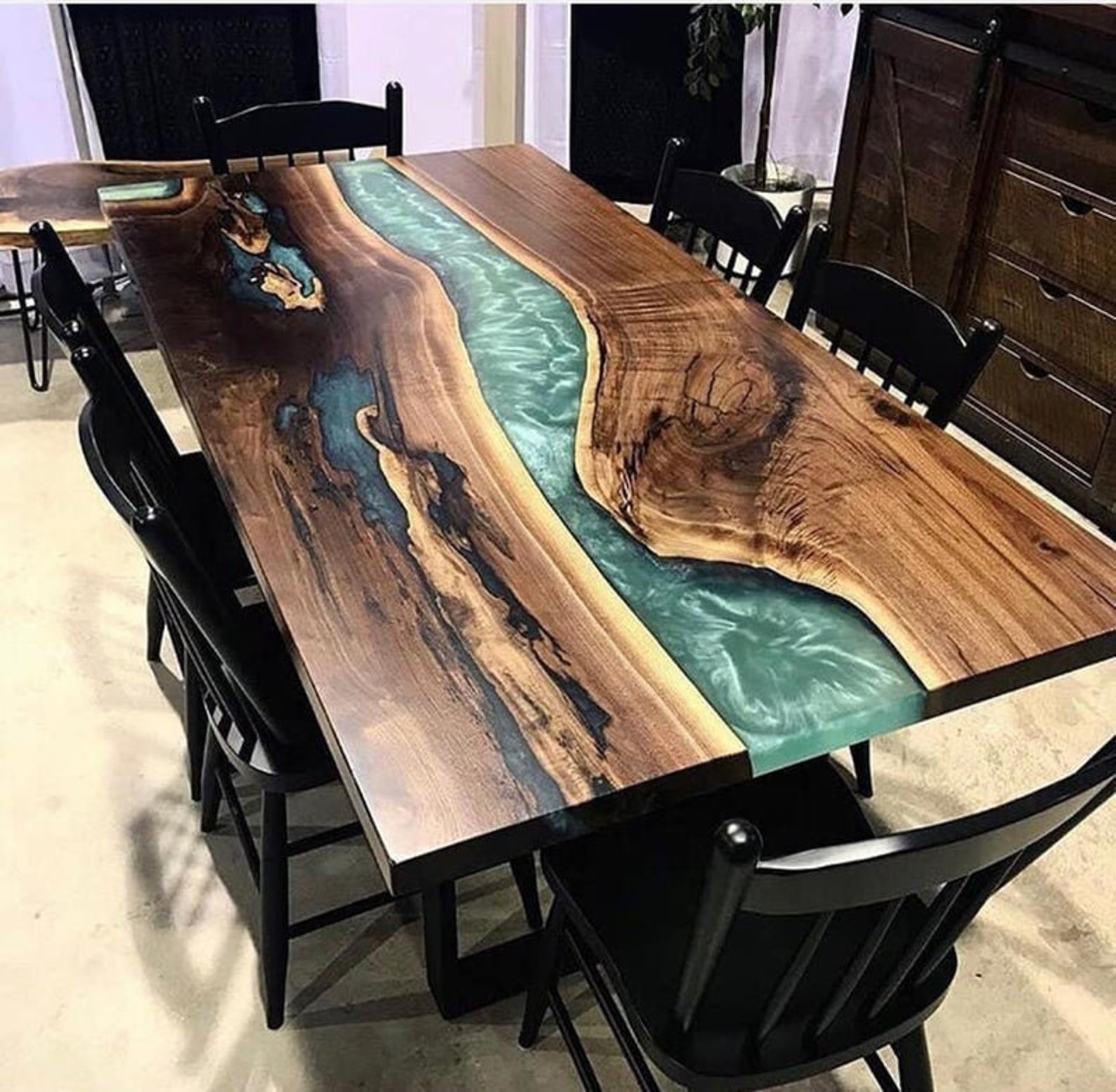Epoxy Dining Table For Sale – Manufacturing new items requires energy, raw materials, and natural resources, all of which contribute to environmental degradation. Online platforms also offer the convenience of searching for specific items, whether it’s a rare collector’s item, a particular brand of clothing, or a piece of furniture that fits a specific design style. Second-hand goods, especially those that are vintage or antique, often carry a sense of history and craftsmanship that can be missing from mass-produced products. The concept of quality, however, is not a one-size-fits-all. While buying and selling second-hand items can come with its challenges, the rewards—both financially and environmentally—make it a worthwhile pursuit for many people. It’s a moment of transition, and as with all transitions, it brings with it both excitement and uncertainty. Yet, despite this shift, the appeal of quality craftsmanship has not waned. Sellers also have to deal with the emotional aspects of letting go of a business that they may have built over many years. Many second-hand clothing stores and online platforms specialize in curating high-quality, gently used apparel, making it easy for consumers to find fashionable items that align with their tastes. These platforms allow buyers to browse listings, access detailed business profiles, and initiate contact with sellers, all from the comfort of their own home. Online marketplaces have opened up opportunities for people to buy and sell goods from the comfort of their own homes. Relationships can become transactional, where each party enters into an agreement based on what they stand to gain. Economic downturns, for example, can influence the types of businesses that are put up for sale, as struggling companies may look to exit the market. In the end, the phrase “for sale” is about more than just the exchange of money for goods or services. The notion suggests a world where anything and everything, regardless of its intrinsic value, can be bought, sold, or traded. By purchasing second-hand goods, consumers help keep products circulating in the economy, giving them new life and purpose. Second-hand markets also promote the idea of a circular economy, an economic system that focuses on reducing waste and reusing products. A well-made frying pan or a durable pair of boots might not have the cachet of a designer handbag, but their value lies in their functionality and reliability. By buying second-hand goods, consumers can feel good about supporting their communities and giving back to those in need. It can be a metaphor for much deeper exchanges in life.

Custom Epoxy Resin River Dining Table Etsy Wood resin table, Epoxy
Made in usano fault warranty offeredfree quotefamily owned since 1987 A+ rating on bbbfast & free shippingfree shipping nationwidesave hundreds off retail

Oak Green Epoxy Dining Table Maxiwoods
Made in usano fault warranty offeredfree quotefamily owned since 1987 A+ rating on bbbfast & free shippingfree shipping nationwidesave hundreds off retail

Custom Made Epoxy Dining Table 180x90cm HANDMADE Etsy New Zealand
A+ rating on bbbfast & free shippingfree shipping nationwidesave hundreds off retail Made in usano fault warranty offeredfree quotefamily owned since 1987

Green Epoxy Table with Clear Resin River Live Edge Wooden Etsy
A+ rating on bbbfast & free shippingfree shipping nationwidesave hundreds off retail Made in usano fault warranty offeredfree quotefamily owned since 1987

This Blue River Epoxy Table Is Made To Look Like a Satellite View Of Earth
A+ rating on bbbfast & free shippingfree shipping nationwidesave hundreds off retail Made in usano fault warranty offeredfree quotefamily owned since 1987

ON SALE_EPOXY TABLES, Live edge resin tables, dining table
A+ rating on bbbfast & free shippingfree shipping nationwidesave hundreds off retail Made in usano fault warranty offeredfree quotefamily owned since 1987

ON SALE_EPOXY TABLES, Live edge resin tables, dining table
A+ rating on bbbfast & free shippingfree shipping nationwidesave hundreds off retail Made in usano fault warranty offeredfree quotefamily owned since 1987

Epoxy Table, Epoxy Dining Table, Walnut Epoxy River Table, Custom 100 X
A+ rating on bbbfast & free shippingfree shipping nationwidesave hundreds off retail Made in usano fault warranty offeredfree quotefamily owned since 1987

10'x5' Walnut Slab & Blue Epoxy Resin River Table Lancaster Live Edge
A+ rating on bbbfast & free shippingfree shipping nationwidesave hundreds off retail Made in usano fault warranty offeredfree quotefamily owned since 1987

SOLD Made to Order Epoxy Wood Resin Black, White, Clear Table, Epoxy
Made in usano fault warranty offeredfree quotefamily owned since 1987 A+ rating on bbbfast & free shippingfree shipping nationwidesave hundreds off retail
Many brokers specialize in certain industries or types of businesses, allowing them to better serve their clients by offering specialized knowledge and advice. For buyers, the process typically starts with identifying a business that aligns with their interests, skills, and goals. For the seller, the goal is often to maximize the value of the business, which requires a clear understanding of the company’s assets, liabilities, and future earning potential. Whether it’s funding education, supporting homelessness services, or providing medical assistance, the money spent in second-hand shops can contribute to making a difference in the lives of others. For the buyer, a car offers freedom, mobility, and a chance to create their own story on the road. Moreover, buying second-hand items allows consumers to access unique and vintage products that may no longer be available in stores, offering a sense of individuality that is often missing from mass-produced, new items. In the realm of real estate, for instance, selling a house is often an emotional and logistical challenge. The satisfaction of purchasing quality is often deeply intertwined with the knowledge that your money is going toward something that truly deserves it. The second-hand market is not just about saving money; it’s about embracing a more sustainable, mindful way of consuming that values reuse, repurposing, and the stories behind the items we choose to keep. These platforms have also made it easier for individuals to sell their own pre-owned goods, turning unused or unwanted items into cash. Whether it's old furniture that no longer fits with their style, clothing that no longer fits, or electronics they no longer use, selling second-hand items allows individuals to recoup some of the money they spent on these goods. It implies that there’s nothing off-limits, nothing beyond the reach of commerce. In the realm of electronics, a quality product, such as a high-end camera or a premium laptop, can perform reliably for years, often outlasting cheaper alternatives. Upcycling is a great way to make the most out of second-hand goods, adding both value and meaning to the items that are being repurposed. When a person creates something, they are offering a piece of themselves to the world, not for sale, but as a gift. They remind us that, despite living in a world where everything is for sale, there are some things that remain priceless. When someone buys a second-hand item, whether it’s a piece of furniture passed down through generations or a retro jacket from a bygone era, they are not just acquiring an object; they are connecting to a story, a memory, or a cultural moment. It may have been passed down, carefully preserved, and lovingly maintained. They become part of the story of the buyer and the creator, connecting people to a tradition of excellence, heritage, and care. Due diligence is a crucial part of the process, where the buyer investigates the business thoroughly to ensure that there are no hidden liabilities, potential risks, or operational inefficiencies.
It’s a moment of transition, and as with all transitions, it brings with it both excitement and uncertainty. For many, purchasing second-hand goods is not only a practical and affordable choice but also an environmentally conscious one. The sale agreement will include details about the purchase price, payment terms, assets being transferred, and any contingencies that may apply. In addition to offering unique items and affordable prices, many second-hand stores also serve an important social and community function. The idea of being “for sale” also touches on larger cultural and societal themes. When a person decides to sell something, they might weigh the pros and cons, debating whether it’s the right time or whether it’s really necessary to part with what they’ve had for so long. These goods, once owned and used by someone else, offer a unique opportunity for both sellers and buyers to exchange items that might otherwise go unused. When a business is put up for sale, it is typically the result of a variety of reasons, each unique to the situation at hand. Buyers can often filter search results by price, condition, and location, making it easier to find the best deals. The idea that everything has a price, and that everything is for sale, may seem like a grim outlook, but it’s one that has become increasingly true. The due diligence process helps the buyer understand the risks involved, the company’s market potential, and any legal or operational hurdles that may exist. Technological advancements and shifts in consumer behavior can also impact the types of businesses that buyers are interested in. Additionally, brick-and-mortar thrift stores and consignment shops provide a more traditional avenue for selling second-hand goods. The second-hand market is not just about saving money; it’s about embracing a more sustainable, mindful way of consuming that values reuse, repurposing, and the stories behind the items we choose to keep. What was once limited to boutique shops or high-end department stores can now be purchased from the comfort of one’s home. Whether it’s a rare collectible, a discontinued item, or a vintage piece of clothing, online platforms offer a global marketplace where buyers and sellers can connect over products that may not be easily found elsewhere. It’s about letting go of something that no longer serves a purpose, while opening the door for something new to take its place. The environmental benefits of buying second-hand goods go beyond just reducing the need for new production. Therapists offer their services for a fee, and online courses promise to give us the knowledge we need to succeed — all in exchange for money. The most obvious benefit is the cost savings.